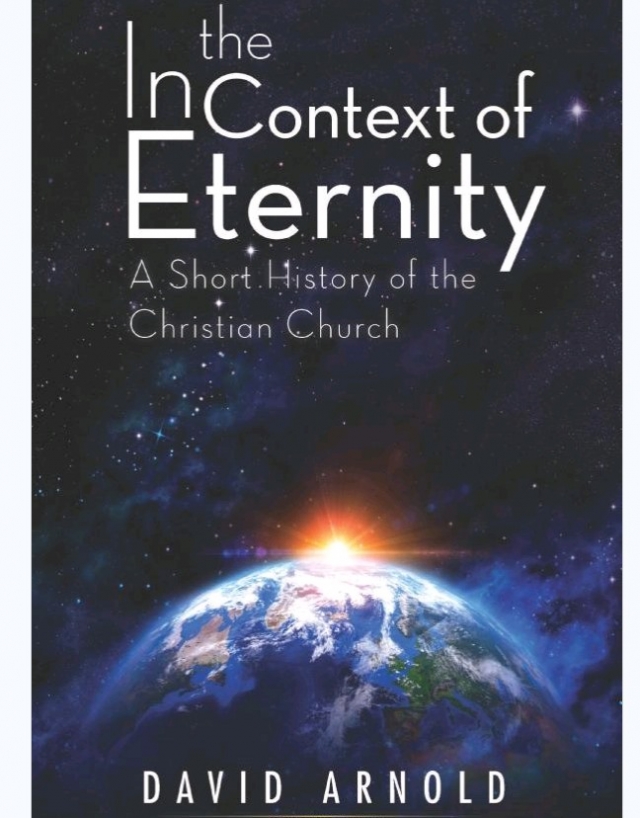In the Context of Eternity
Book review

A Short History of the Christian Church
In the Context of Eternity. A Short History of the Christian Church, David Arnold, Grosvenor House Publishing Limited, 2015, paperback, 303 pp., £10.00, ISBN 9781781484487
This compact overview, by a recently elected Fellow of the Historical Association, combines erudition with accessibility and is a welcome addition to the history of Christianity. In twenty concise chapters, it surveys the history of Christianity from its birth in the Roman Empire to its coexistence with a plethora of world religions today.
It appends a useful summary of a dozen other 'good general histories' of the Christian Church published in the last half-century, ranging from the Penguin History of the Church published during the decade beginning in 1960 to Diarmaid MacCullogh’s History of Christianity, published in 2009, commenting that with the exception of the latter, ‘almost all of these books neglect the Middle Ages and the Churches of the East by comparison with the attention given the western church from the Reformation onwards’. This is a sobering thought in 2017, when the Lutheran Reformation is being celebrated. Arnold’s history is particularly strong on these hitherto neglected areas, with introductory sections on Christendom and the Roman Empire from the fourth to the seventh centuries, the search for orthodoxy, and the emergence of Islam.
A further section with three sub-sections then surveys Christendom divided from the 660s to 1000AD, followed by sections on the High Middle Ages up to the early fourteenth century and the era of reform from the 1330s to the 1660s. Another section with three sub-sections then looks at the the modern world from the 1660s to 2000, addressing the Great Awakening, the emergence of nationalism, the issues of slavery and creationism, Bolshevism and Fascism.
Indeed, its epilogue covering the dawn of a new millennium, having observed that ‘the history of the Christian church covers less than a thousandth part of the time humans have existed, and far less than a millionth part of the time that there has been some form of life on earth’, concludes that ‘the Christian church needs to find how to put aside most of its internal disagreements, learn to agree to differ, and co-operate with others in uniting the world under the rule of justice, moderated by mercy and humility, and in the context of love’. This considerable challenge, however, in the author’s foreword if set in the context of eternity ‘is a brief moment of time’.
This book, which sets Christianity sensitively within the context of other world religions would be a commendable addition to school and college libraries and a useful guide to history and religious education teachers dealing with specifications which encompass any aspect of the history of Christianity.

